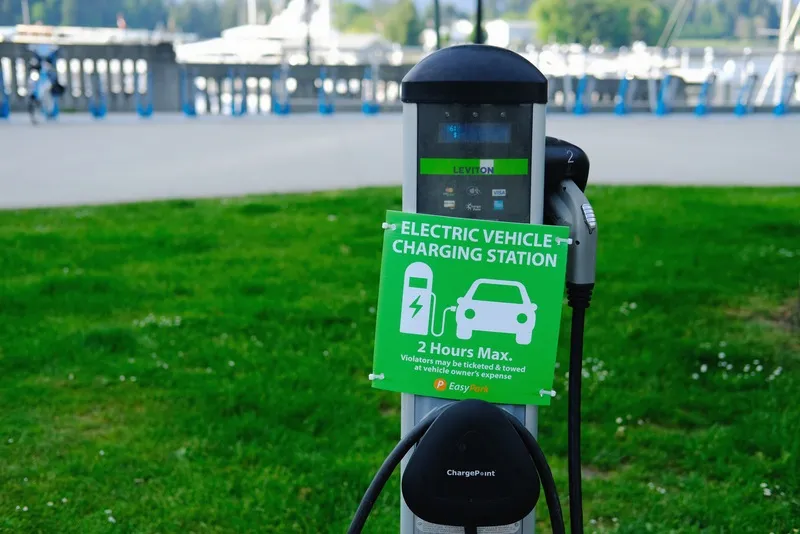New OEM smart mobility divisions, growing safety concerns relating to semi-autonomous driving, and recognition by national governments of the environmental and societal advantages of driverless vehicles will accelerate the deployment of more autonomous forms of driving, according to ABI Research.
Its report, The Market Potential for Semi-Autonomous Driving, expects that semi-autonomous systems will continue to dominate the market over the next decade, with SAE level 2 and 3 systems accounting for 86 per
November 23, 2016
Read time: 2 mins
New OEM smart mobility divisions, growing safety concerns relating to semi-autonomous driving, and recognition by national governments of the environmental and societal advantages of driverless vehicles will accelerate the deployment of more autonomous forms of driving, according to 5725 ABI Research.
Its report, The Market Potential for Semi-Autonomous Driving, expects that semi-autonomous systems will continue to dominate the market over the next decade, with SAE level 2 and 3 systems accounting for 86 per cent of autonomous vehicles shipping in 2026. Higher levels of autonomy will gain traction quickly, representing just under one-third of autonomous vehicles shipping in 2030.
James Hodgson, industry analyst at ABI Research believes driverless cars will transform the way mobility is consumed, bringing environmental, societal and convenience advantages to the end user. It also represents a fundamental disruption to the business model that dominated the automotive market for almost one century. OEMs have much to gain in pursuing semi-autonomous operation, maintaining the importance of the driving experience.
However, recent announcements from1731 BMW, 278 Ford, 2453 Renault-838 Nissan, and 8534 Tesla signal that OEMs are not only looking to introduce higher levels of autonomy by 2021, but are also actively planning to transition from vehicle sellers to mobility providers.
Both Ford and Renault-Nissan launched smart mobility divisions to build on the existing trend of OEM/rideshare partnerships and investments. The divisions also provide a platform for these brands to research and implement autonomous and connected technologies.
Meanwhile, the recently announced Tesla Network details how the brand intends to facilitate peer-to-peer autonomous car sharing, and how participation will impact consumer car ownership costs. ABI Research finds Tesla’s decision to withdraw the level 2 Autopilot system in favour of Enhanced Autopilot and eventually deep learning-based autonomous functionality, consistent with SAE level 4, or even level 5, to be the most concrete example of the shift in industry attitudes toward low level semi-autonomous driving.
“The spread of low-speed traffic jam assist systems to more of the mass market, in tandem with the increasing combination of longitudinal and lateral assistance on highways, will see semi-autonomous vehicles retaining their dominant market share for some years,” concludes Hodgson. “The quasi-universal 2021 target date for the rollout of more highly automated system nonetheless represents a significant acceleration in the autonomous technology market.”
Its report, The Market Potential for Semi-Autonomous Driving, expects that semi-autonomous systems will continue to dominate the market over the next decade, with SAE level 2 and 3 systems accounting for 86 per cent of autonomous vehicles shipping in 2026. Higher levels of autonomy will gain traction quickly, representing just under one-third of autonomous vehicles shipping in 2030.
James Hodgson, industry analyst at ABI Research believes driverless cars will transform the way mobility is consumed, bringing environmental, societal and convenience advantages to the end user. It also represents a fundamental disruption to the business model that dominated the automotive market for almost one century. OEMs have much to gain in pursuing semi-autonomous operation, maintaining the importance of the driving experience.
However, recent announcements from
Both Ford and Renault-Nissan launched smart mobility divisions to build on the existing trend of OEM/rideshare partnerships and investments. The divisions also provide a platform for these brands to research and implement autonomous and connected technologies.
Meanwhile, the recently announced Tesla Network details how the brand intends to facilitate peer-to-peer autonomous car sharing, and how participation will impact consumer car ownership costs. ABI Research finds Tesla’s decision to withdraw the level 2 Autopilot system in favour of Enhanced Autopilot and eventually deep learning-based autonomous functionality, consistent with SAE level 4, or even level 5, to be the most concrete example of the shift in industry attitudes toward low level semi-autonomous driving.
“The spread of low-speed traffic jam assist systems to more of the mass market, in tandem with the increasing combination of longitudinal and lateral assistance on highways, will see semi-autonomous vehicles retaining their dominant market share for some years,” concludes Hodgson. “The quasi-universal 2021 target date for the rollout of more highly automated system nonetheless represents a significant acceleration in the autonomous technology market.”







